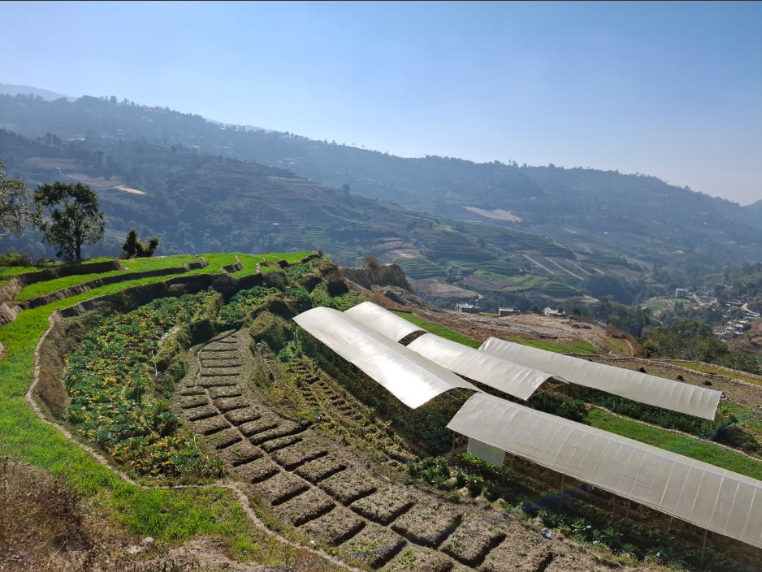"Breaking Barriers: Junita Waiba’s Story"
When Junita Waiba participated as a Community Leader at the AWID Forum 2024, a powerful statement from Yashokanti Ma’am, Vice Chairperson of the National Indigenous Women Forum (NIWF), echoed in her mind: “Our goal is to empower young women like you to lead your community.” It was a moment of immense pride and reflection, a testament to her incredible journey from being a homemaker to becoming an influential leader in her community.
Early Life and Struggles: Junita was born into a modest, lower-middle-class family in Ward No. 5 of Shankharapur Municipality, Kathmandu. Her childhood was shaped by hardship and responsibility. Losing her mother at a young age, she took on the role of caregiver for her younger siblings while her father worked away from home. This selfless commitment to her family meant sacrificing her own education and dreams. At 21, she married and immersed herself in the responsibilities of a homemaker, caring for her in-laws, husband, and son. She lived a quiet life, never imagining she would one day represent her community on an international stage.
A Life-Changing Opportunity: In 2019 (2076 B.S.) Junita’s life took a transformative turn when the National Indigenous Women Forum (NIWF) introduced a training program on Integrated Pest Management (IPM) in Shankharapur. Curious and determined, Junita decided to participate. This decision marked the beginning of a new chapter in her life. The training introduced her to modern farming techniques and highlighted the potential of collective agricultural efforts. Motivated by this newfound knowledge, Junita joined a women’s farming group, which, with the guidance of NIWF, was officially registered as "Bishambhara Tamang Mahila Krishak Samuha" under the Department of Agriculture and Animal Husbandry. The group, comprising 25 women, began contributing NPR 500 each month to pool resources and launch sustainable farming initiatives. With NIWF’s support, they secured quality seeds, accessed local markets, and collaborated with government offices to acquire necessary funding.

Photograph of the Integrated Pest Management (IPM) Group's Fields in Sankharapur
Cultivating Success: Under Junita’s leadership, the group’s efforts soon began to yield significant results. Improved farming practices not only enhanced food security for their families but also produced surplus crops for sale in local markets. The group now generates an annual income exceeding NPR 200,000, which is reinvested to further strengthen their farming practices. As chairperson of group, Junita has become a beacon of hope and empowerment for other Tamang women. By addressing economic and social barriers, she has inspired her peers to take charge of their futures. The initiative has fostered a sense of unity and resilience among the women, equipping them with the skills to adapt to changing climates and improve their livelihoods sustainably.
A Journey of Personal Growth: Junita’s journey has been as much about personal transformation as it has been about community development. Realizing the importance of education, she resumed her studies, determined to fulfill the dreams she once set aside. Her ambitions now extend beyond agriculture. She envisions expanding into other business ventures, bringing more women into leadership roles, and building a legacy of collective empowerment. “The difference between the Junita before and after engaging in agriculture is as vast as the sky and earth,” she often reflects. From a woman who rarely stepped outside her home, Junita has become a dynamic voice for her community, inspiring young farmers and advocating for women’s empowerment on international platforms.
A Legacy of Resilience and LeadershipL Today, Junita Waiba serves as the vice-chairperson of a farmer’s group in Shankharapur Municipality. Her name has become synonymous with resilience, determination, and leadership. Her journey from homemaker to community leader is a shining example of what can be achieved when opportunity meets determination.
Junita’s story is not just her own—it’s a source of inspiration for women everywhere, proving that with courage and support, any dream is within reach.

Junta Waiba and her IPM group working in their field

